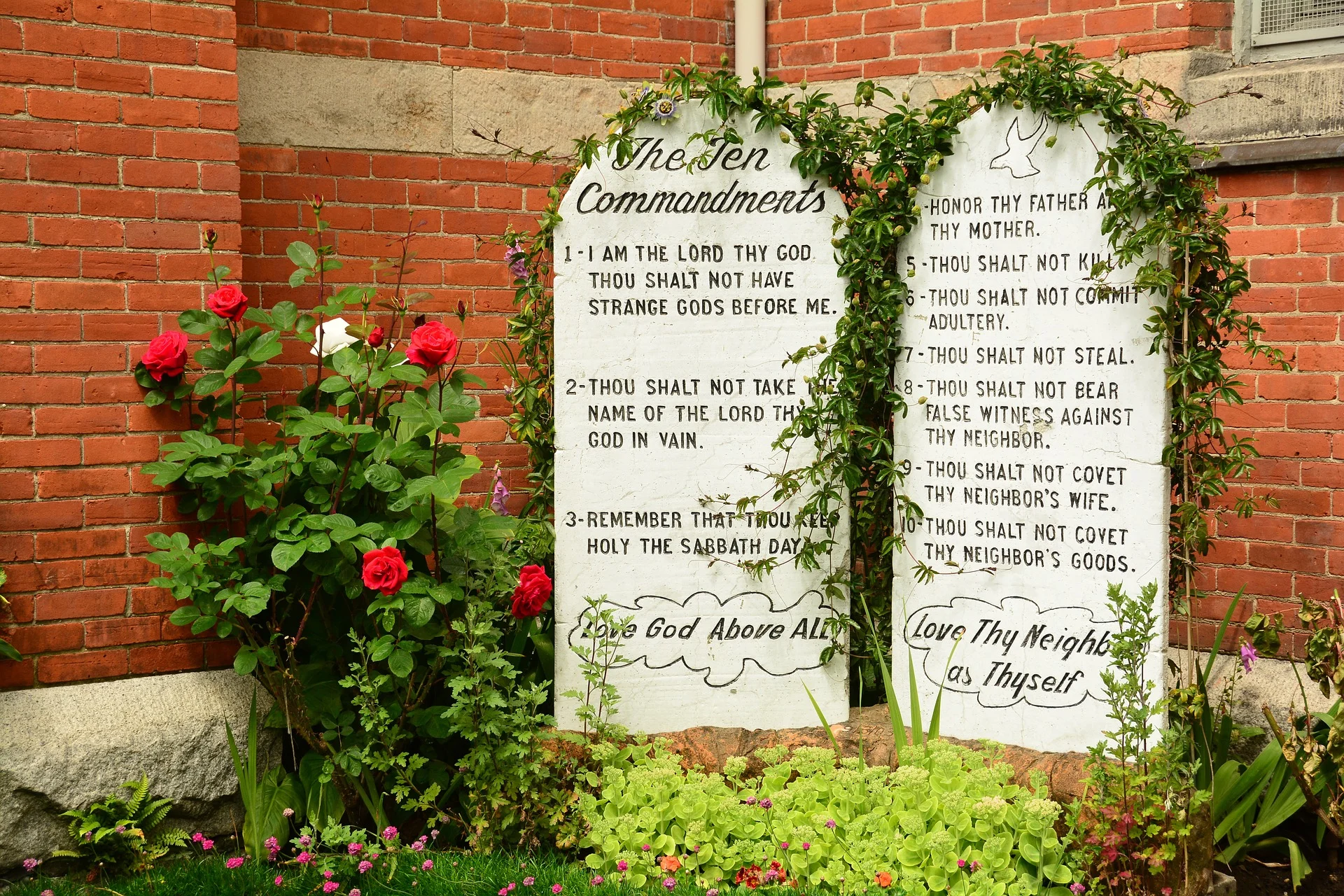Traits of a Godly Person: Moral Excellence - Part 2
In our world today, it is hard to talk about morality. As soon as the word shows up in a conversation or on social media, accusations fly of a judgmental attitude or intolerance. While it is true, that some people who try to be moral, can be harsh and unloving, that does not define what morality is, or who authored the idea. As I said last week, moral excellence is merely the desire to do what is right and avoid what is wrong. The question then must be pondered as to who determines what is right and what is wrong.
Image by Johannes Plenio from Pixabay
If we believe we evolved from a primordial soup, then the determination of what is right and what is wrong can get a little slippery. The mentality of most animals is survival of the fittest. If we did, evolve from animals like monkeys or, as my husband likes to ponder, bears (since we really should be hibernating in the winter), then we would only be concerned about our own survival and our own well being. If I feel I am being threatened, don’t I have a right to eliminate the threat? If I feel hungry, don’t I have a right to eat whatever I want, wherever I want without any repercussions? If I believe I need a new car, shouldn’t I just be able to go to the car lot, pick out a car I like and then go demand the keys? Maybe I feel a little blue, shouldn’t I be able to drink, smoke pot and take opioids without any long term effects?
My examples are a little extreme, but I am trying to make a point. Our society and our world as a whole does have a moral standard. We have laws in place that are meant to protect. Where did those laws and standards come from? Did some monkey come up with them? Did a being, somewhere along the evolutionary line decide, “Hey, I want to be a good person and I want everyone else to be a good person, so I am going to come up with a set of standards. I’ll call it a moral code. It’ll include things like: we shouldn’t kill each other; we shouldn’t go over to our neighbor’s cave and steal his wife, no matter how pretty she is; we probably shouldn’t steal his food either….”
If we have truly evolved, then why are we still so blasted ugly? We hate, we kill, we covet, we have affairs, we promote twisted sexuality by making porn available, we steal, we do drugs, we even kill ourselves. How is this moral excellence? How is this morality at all? It’s not.
By placing ourselves under the authority and wisdom of a loving and just creator, we can easily buy into the moral code that He provided. The ten commandments were taken as truth ever since God’s finger wrote them down for Moses on Mt. Sinai. In recent years, however, attacks have been made on these commandments in a real and visceral way, from cars crashing into stone fixtures on which the commandments were inscribed, to Satanic groups protesting them, to lawsuits filed by the ACLU, this early list of moral codes has been focused upon as a religious issue, but in reality aren’t the ten commandments a moral standard that everyone, should ascribe too? From the religious right, to the liberal left, the Satan worshippers and the members of the ASLU, shouldn’t all of us live by these ideals: to not murder, to not covet, to not steal and so on.
Image by Jondolar Schnurr from Pixabay
It is hard to talk about moral excellence without broaching these ideas. That being said, let me remind my readers, I am writing to an audience made up mostly of people who believe similarly to myself. I am not trying to convert you to my belief system, though I would be thrilled to talk to you about it. I am just trying to get you to think about the whole picture. Why is the world so against the idea of a moral compass? What is wrong with wanting to have standards of right and wrong? But hey, if I take on the mentality of those who would prefer to not have a moral code, then by all means, do whatever you want, as long as it isn’t hurting anyone. But then who is going to decide what hurt really is and who is really feeling it?
Okay, I’ll step off my soap box now. Ha, ha.
So how do we, as Christ followers attain and maintain moral excellence? I have several ideas and if you have more, I’d love to hear your thoughts in the comments.
1 - Know To Whom You Belong
“Know that the Lord Himself is God; It is He who has made us, and not we ourselves; We are His people and the sheep of His pasture.”
If you have made a decision to believe in the work, death and resurrection of Jesus you are part of His family now. Knowing where you belong, can make a big difference in where you place your trust. The one you trust determines where you are going to place your faith and how you are going to live your life.
2 - Grow in that Knowledge
“6 Therefore as you have received Christ Jesus the Lord, so walk in Him,
7 having been firmly rooted and now being built up in Him and established in your faith, just as you were instructed, and overflowing with gratitude.”
A relationship with Jesus is not static. When you determine to follow Jesus, you don’t suddenly arrive and become that morally excellent person you should be. You have to learn more and learning takes place by studying His word, being around others who will encourage your growth and reading authors who studied the Bible and lived life.
3 - View it as a Relationship
I think we learn more and are more motivated if we are invested in the relationship. Being a Christian isn’t just a contract between, you, Jesus, the Father and the Spirit. It is a living, thriving, growing, loving relationship.
“Jesus answered him, “If anyone loves me, he will keep my word, and my Father will love him, and we will come to him and make our home with him.”
I have always loved that verse, because it sounds so familial. God is going to come and make a home with us. it doesn’t say, He’ll meet us at the office or in the garage, but in our homes. That is so relational.
4 - Choose morally good things
It is easy to let our guard down and start watching shows and reading books or going to movies that may not be what is best for us. We all have a different standard factor, meaning some people can watch horror films and not have nightmares afterwards. When I was younger I used to love to watch scary movies. I still occasionally get fearful when I am home alone, thinking the boogie man is lurking in the shadows. I don’t watch scary movies any more. Now I am noticing that other things seen in shows are starting to bother me as well. That is only one example. You know what your standard triggers are. Just like an alcoholic has to stay completely away from alcohol and those situations, we need to make choices to head to the moral high ground, so that God’s work in us is not for naught.
Image by Free-Photos from Pixabay
“4 Rejoice in the Lord always; again I will say, rejoice!
5 Let your gentle spirit be known to all men. The Lord is near.
6 Be anxious for nothing, but in everything by prayer and supplication with thanksgiving let your requests be made known to God.
7 And the peace of God, which surpasses all comprehension, will guard your hearts and your minds in Christ Jesus.
8 Finally, brethren, whatever is true, whatever is honorable, whatever is right, whatever is pure, whatever is lovely, whatever is of good repute, if there is any excellence and if anything worthy of praise, dwell on these things.
9 The things you have learned and received and heard and seen in me, practice these things, and the God of peace will be with you.”
I love this passage and I often quote it when I am feeling anxious, but verse 8 really can up our moral excellence factor, if we allow God to bring those things to mind.
I hope this study of the traits of a Godly person is challenging your thinking and causing you to dig deeper into God’s word and into your relationship with Him. Thanks for reading.



















































































